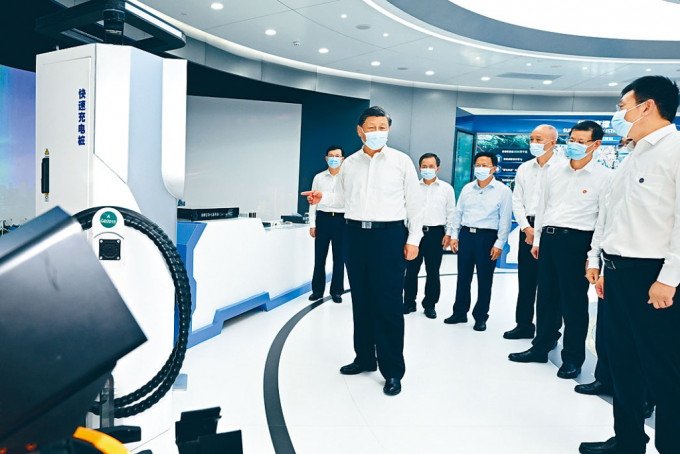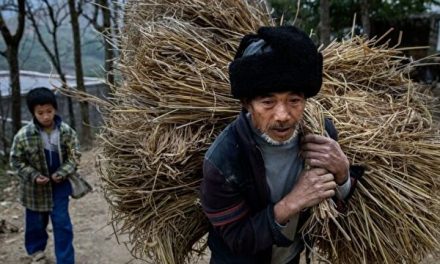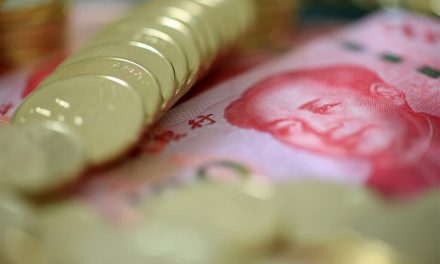By: Deng Yuwen
Mar 18, 2024
Since February, the Politburo of the Communist Party of China has collectively studied Xi Jinping’s proposal for so-called “new productive forces.” This term has not only been included in the government work report of the Two Sessions [referring to those recently completed by the National People’s Congress and the Chinese People’s Political Consultative Conference], but has become the top priority of the Chinese government this year. The government has also manufactured a great deal of public opinion. Official media and scholars are exhaustively discussing the essence of this “new productivity” — how to develop new qualitative productive forces and raise them as high as possible, as if moving forward without these “new-quality” productive forces, the CCP will not be a party, and China will not be a country.
The comedy lies in the fact that this term, originally confined to economic productivity, has gone beyond this range and invaded other fields. The initiator was Xi Jinping. In his speech to the People’s Liberation Army delegation at the two sessions, he proposed a new concept: new-quality combat power, which the People’s Liberation Army must enhance. Since the core takes the lead in setting an example to promote any “new-quality whatever,” the bureaucrats and imperial scholars below are working harder to expand the scope of this concept. Therefore, people have seen that intellectuals have indeed written articles to present this new-quality democracy.
Zhang Shuhua, director of the Institute of Political Science of the Chinese Academy of Social Sciences and dean of the School of Government of the University of Social Sciences, published a short article on social media titled “A Preliminary Discussion of New-Quality Democracy” (《新质民主初论》).This is the most ridiculous article I have seen in a while, because even if as a writer you want to do what the leader wants and sell your articles for glory, you are still a little tyrant political scholar in China’s highest academic palace. The articles you write must be at least a little academic and add a little knowledge, otherwise it will besmirch one’s reputation. However, in his discussion, this is completely absent, rather there is only shameless flattery.
The new-quality democracy described by Zhang is socialist in nature, and its essence is the unity of the party’s leadership and the people’s ownership of the country. Its characteristics are autonomy, endogeneity, unity, consensus, systematization, and effectiveness. In Zhang’s take, new-quality democracy inherits the people-oriented ideas of “the world is for the common good” and “the people are the foundation of the state,” found in the outstanding traditional Chinese culture, and is nurtured by the century-old road to democracy independently explored by the people under the leadership of the CCP. It is based on a people-centered value stance. China’s democracy is people’s democracy, and China’s governance is people’s governance. It is not simply a continuation of history and culture, nor is it a template for simply applying democratic theory. It is not a reprint of other countries’ democratic practices, but it is concrete, evolving, realistic and effective. The key to whether democracy is authentic or false depends on the will of the people. The people’s livelihood is the most important factor in whether democracy is good or not. New-quality democracy is development-oriented high-quality democracy. Etc., etc., on and on.
Can the reader tell from the description above what this new-quality democracy he is talking about is? Maybe it can scare some people who don’t understand “democracy with Chinese characteristics” or “full-process democracy” as presented in official statements, but as long as you have some understanding of the latter two, you will know that the so-called new-quality democracy Zhang expounds does not add anything new and was completely copied. The only difference from the CCP’s past socialist democracy or the current fashionable expression of full-process democracy is just that the latter two have been repackaged with the label “new-quality democracy.” The content is exactly the same, but with the addition of the CCP’s own self-created “autonomy, endogeneity.” “Unity, consensus, system, effectiveness” are a bunch of new terms, but I’m afraid he doesn’t understand their meaning.
After seeing this new-quality democracy, many people sarcastically say that on top of it and new-quality productivity, a new-quality economy, and new-quality combat power, there will also be new-quality culture, new-quality enterprises, new-quality schools, new-quality communities, new-quality hospitals, new-quality families, new-quality neighborhoods, new-quality couples, new quality leaders…In short, in the future, new-quality things will bloom throughout China. When anyone meets, the first thing they will ask will be, “Have you acquired anything new-quality?” It seems that once a thing is called “new-quality,” it becomes brand new from top to bottom.
While Xi Jinping likes to coin new words, and most of these new words and the things they are created to promote have become the butt of jokes, the term “new-quality productivity” itself is still holding up. Judging from the authorities’ vigorous campaign, they also want to use this new formulation to carry out China’s industrial upgrading and technological transformation. Xi Jinping has an explanation of new-quality productivity. The general idea is that it will be spawned by revolutionary breakthroughs in technology, innovative allocation of production factors, and in-depth transformation and upgrading of industries. Its basic connotation is the improvement of workers, labor materials, labor objects, and their optimized combinations. With a substantial increase in total factor productivity as the core symbol, characterized by innovation, the key is high quality, and the essence is advanced productivity. The core element of developing new productive forces is to use technological innovation, especially original and disruptive technological innovation, to spawn new industries, new models, and new active social energy.
Therefore, the authorities’ intention in accepting this new formulation is to use it to break away from the traditional economic-growth model and productivity-development path, to accelerate the realization of high-level scientific and technological self-reliance, and to create an industrial and supply chain that China can control. In other words, to put it bluntly, the government’s top priority is to use technological innovation to establish China’s own industrial and technological systems that are not subject to the United States and the West.
Of course, this is not something just conceived of now. China has been doing this for the past few years. In this regard, “new-quality productivity” is not a new thing, just a different way of saying it. But once it is theorized, the significance is that self-reliance of science and technology from the perspective of productivity theory is still different. It shows that the authorities are aware of the seriousness and urgency of industrial transformation and upgrading this self-reliance. Therefore, the whole party and the whole country must strengthen this consciousness and accelerate the layout of science and technology and industry to prepare for the fierce economic and technological struggle between China and the United States starting from now on. This is the meaning of the phrase.
However, as Xi Jinping continues to roll back reform and openness, this expectation is destined to be disappointed. First, scientific and technological innovation itself relies on the rule of law and freedom. Second, technological progress relies on the exchange of cutting-edge scientific and technological achievements around the world. Without these two points, just paying lip service to “new-quality productivity” and “new-quality economy” will not really have any effect other than providing new material for officials who are skilled at flattering others.
Now, everything is labeled as new-quality, just like new-quality democracy. Even in the economic sphere, signs of this change are already emerging. This is the inevitable consequence of the CCP’s system and culture. It is unclear whether this new productivity or new economy will end up dying as a half-finished project. However, after the term’s novelty wears off, it is difficult to be optimistic about technological innovation being achieved, or such innovation giving rise to new industrial forms and achieving high-level technological self-reliance. Although consciousness and enthusiasm can promote this to a certain extent, technological innovation and industrial transformation and upgrading also rely on other more critical factors, including respect for property rights and human rights, the rule of law, and openness to the outside world.





















